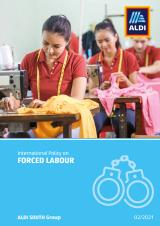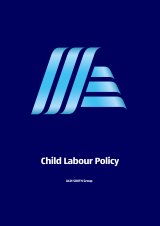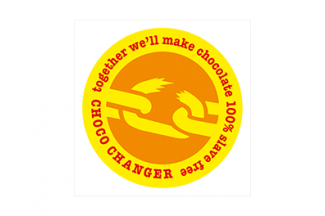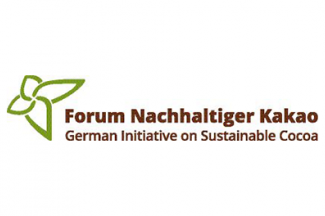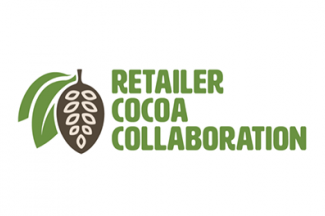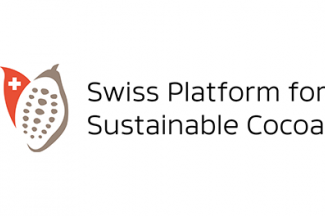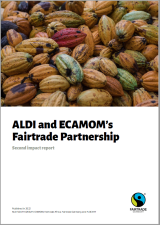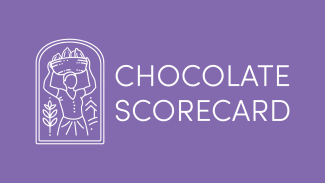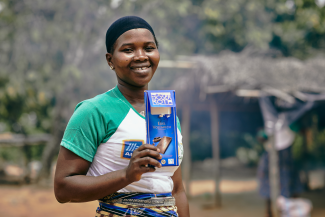
Cocoa
Our Approach
Cocoa is grown by smallholder farmers who may face difficult working and living conditions. The cocoa used in our products comes mainly from Côte d’Ivoire and Ghana. Human rights violations including child labour, as well as environmental risks such as deforestation, are key challenges when sourcing cocoa.
The ALDI SOUTH Group is committed to fostering fair working conditions and environmentally friendly production in the cultivation of cocoa. In order to tackle these challenges, ALDI SOUTH continues to increase the amount of certified sustainably sourced cocoa in its range. In addition, we collaborate with other stakeholders on projects on the ground and are working with our business partners to increase traceability of our cocoa.
Our Actions

Certification and Standards
We want to provide our customers the highest quality at the best possible price. Certification schemes are one way to determine whether sustainability standards are adhered to in the cultivation of the cocoa used in our products. We require the sustainability standards Rainforest Alliance, Fairtrade, Fairtrade USA or organic when buying products containing cocoa and we have already converted the majority of the cocoa used in our private label products. The ALDI SOUTH Group additionally engages with certification organisations to strengthen requirements and improve sustainability standards at farm level.
Fairtrade
The ALDI SOUTH Group is a proud partner of the Fairtrade Cocoa Programme and in 2020 paid over €4 million of Fairtrade premium to the producer organisations of cocoa farmers through selling Fairtrade-certified products to our customers. Due to our commitment to increase the share of certified products, we have increased the sale of Fairtrade-certified chocolate products and the benefits for farmers by 25% compared to the previous year. Approximately 30% of our chocolate products contain Fairtrade certified cocoa.
The Fairtrade Premium is an extra sum of money, paid on top of the selling price that farmers or workers independently invest in sustainable projects to fulfil the standard. They decide together how to spend the Fairtrade Premium to reach their goals, such as improving their farming, businesses, or health and education in their community.
How do farmers and workers typically spend their Fairtrade Premium?
The Fairtrade Premium is spent on a broad range of business or community improvements and projects.
Small producer organizations:
Farmer members of small producer organizations invest the majority of their Fairtrade Premium on direct services for farmers and measures to strengthen or maintain their cooperative.
Spending is directed towards projects that will improve crop quality or productivity – co-op level facilities and infrastructure such as improvements to facilities for crop processing and storage, quality testing, and crop collection and transport. Premiums are also used to purchase fertilizers, seeds, plants, tools, and equipment. Small producer organizations also spend the Fairtrade Premium on direct payments to members, and on community projects supporting access to education and healthcare.
Plantation workers:
In the case of plantations, the bulk of Fairtrade Premium spending goes towards direct support for workers and their families, including education bursaries, books and uniforms; healthcare; housing improvements; loans and credit, and much more. The Premium is also spent on broader community education and health projects, and to supporting and training the members of worker organizations.
For specific Fairtrade Premium allocation, please see the latest edition of ‘Monitoring the Scope and Benefits of Fairtrade'.
Rainforest Alliance
Certification schemes are an important aspect of our sustainability approach and ensure that sustainability standards are adhered to in the cultivation of the raw materials used in our products. Approximately 60% of our chocolate products contain Rainforest Alliance certified cocoa. Starting from September 2020, our products will be carrying the new Rainforest Alliance certification seal, which is part of their new identity after they merged with UTZ in 2018.
The Rainforest Alliance is an international non-profit organisation that brings together farmers, businesses, consumers and others to work towards a world where people and nature thrive in harmony. The alliance works in more than 70 countries.
Supply Chain
About 2.5 million cocoa farming families in Ghana and Côte d’Ivoire produce more than 60% of the world’s cocoa. These smallholder farmers can face difficult working and living conditions. Human rights violations including illegal child labour, as well as environmental risks such as deforestation, are key challenges for retailers when sourcing cocoa. The cocoa used in ALDI products mainly comes from Ghana and Côte d’Ivoire and we are committed to fostering fair working conditions and environmentally friendly production in the cultivation of cocoa.

Visits and Assessments
As part of our engagement, we regularly visit and assess production sites together with our business partners in our food and non-food supply chains.

Human Rights
We respect human rights and do our part to improve living and working conditions throughout our supply chains.
Human Rights Risk Assessment

We regularly conduct human rights risk assessments to examine the human rights risks within our food and agriculture supply chains. The aim of these assessments is to identify any adverse impacts our company may have on human rights, gain insights into our actual impacts and understand how we may be involved through our own activities or as a result of our business relationships.
We determined cocoa as a raw material with a high risk of adverse impacts on the enjoyment of human rights and consider it most important to the ALDI SOUTH Group.
Modern Slavery
Forced labour continues to be a severe problem in the cocoa industry. A study conducted in 2018 confirms that at least 30,000 people are victims of modern slavery in the cocoa industry in Ghana and Côte d’Ivoire.
The ALDI SOUTH Group and the ALDI Nord Group jointly published their ‘International Policy on Forced Labour’ in order to expand their zero-tolerance approach to any forms of slavery and forced labour.
Child Labour
Illegal child labour remains a problem in the cocoa supply chain and 95% of the children working on cocoa plantations are doing hazardous work, such as working with dangerous tools or harmful pesticides.
ALDI does not tolerate illegal child labour in any areas of its operations, including its supply chains. The cocoa used in almost all of ALDI’s cocoa-containing products is certified according to Rainforest Alliance and Fairtrade. All of these standards set requirements for the prevention of child labour in supply chains.
Living income
The concept of living income seeks to address the question of how to reach a decent standard of living for self-employed people such as smallholder farmers. The income of smallholders is often below national poverty lines and does not provide them with enough money to cover their basic needs and the cost of cocoa production. Inequality in the cocoa value chain and the resulting extreme poverty make working towards the payment of a living income an important part of a sustainable supply chain.
ALDI supports the integration of mechanisms to enable living incomes into certification standards. Where certification reaches its limitations, ALDI will pilot the following approach to increase incomes:
Premiums to boost incomes
A sweet deal for consumers and farmers: ALDI is proud to be a sustainability frontrunner by enabling cocoa farmers to earn a living income. As a Mission Ally of Tony’s Open Chain, ALDI pays farmers a premium for the Choceur CHOCO CHANGER chocolate bar based on the calculations of a living income by Fairtrade and Tony’s Chocolonely. The higher price takes into consideration the costs of living and the costs of farming. Fairtrade and Tony’s Chocolonely share the same vision and use the same model for calculating the cocoa price that enables farmer to earn a living income. They have improved existing models, integrated widely accepted benchmarks and research and share their insights with the chocolate industry with the Living Income Reference Price for cocoa. The premium is coupled with responsible purchasing practices such as long-term contracts and risk sharing e.g. due to insurances to increase the resilience of smallholders.
Stakeholder dialogue & Capacity building
We believe the best way to protect the people and the environment is through joint initiatives and partnerships. For this reason, we engage in various multi-stakeholder initiatives and projects on the ground.
Projects on the ground
Our sustainably sourced chocolate: Choceur CHOCO CHANGER

A sweet taste, a delicious smell and a little bit(e) of happiness: We are excited to present our responsibly sourced chocolate: Choceur CHOCO CHANGER. Our customers’ choice is empowering cocoa farmers in West Africa. Together, we can amplify our positive impact on cocoa farmers and change the norm in the cocoa industry by working on ending poverty, illegal child labour, and deforestation.
As the first international discount retailer to join Tony’s Open Chain in December 2020, ALDI is committed to support Tony’s Open Chain’s ambitious mission to change the norm in the cocoa industry by improving the working conditions along the supply chains and by collaborating in the transparent sourcing of cocoa beans. The cocoa beans for the Choceur CHOCO CHANGER are sourced via Tony’s Open Chain and its 5 Sourcing Principles.
PRO-PLANTEURS project

© Forum Nachhaltiger Kakao
Since 2015, as a member of the German Initiative on Sustainable Cocoa (GISCO) we have worked in partnership with the German government and the government of Côte d'Ivoire in a joint project. PRO-PLANTEURS works together with 25,000 cocoa farmers, including female farmers, their families, and their cooperatives.
Successes of the first project phase were:
- Professionalisation of cooperatives
- Increase in farmers’ cocoa yields
- Farmer training in Good Agricultural Practices and professional business management
- Diversification of agricultural production and nutrition.
In the PRO-PLANTEURS project, women are specifically trained on good nutrition and the cultivation of food crops for their own use. This allows women to be more financially independent by selling and consuming the harvest of food crops.
In June 2020, PRO-PLANTEURS started its second project phase with a focus on contributing to better living and working conditions of about 30,000 cocoa farmers.
Fairtrade Impact Report

© Fairtrade Deutschland
In 2020, the ALDI SOUTH Group, Fairtrade, and the Fairtrade cocoa cooperative ECAMOM started to conduct annual monitoring to record how the working conditions and livelihoods of local cocoa farmers in Côte d’Ivoire are improved due to the Fairtrade premium.
The first impact report served as a baseline to provide insights into the work of the cooperative and the farmers and identified the challenges they are facing. We aimed to provide a picture of what cocoa farming looks like today and highlighted potential areas of opportunities that can enable a long-term partnership between the stakeholders involved in the supply chain.
The second impact report already shows that all plots have now been GPS mapped, increased Fairtrade sales and more farmers in organic certification.
Income Diversification project

© Barry Callebaut
In 2020, the ALDI SOUTH Group has joined forces with the chocolate producer Barry Callebaut and the Cocoa Horizons Foundation to support Ghanaian cocoa farmers to generate alternative income sources to cocoa. The two-year project is co-funded by the Belgian initiative ‘Beyond Chocolate, which is funded by the Belgian Ministry of Foreign Affairs and coordinated by IDH, the Sustainable Trade Initiative.
Activities in the project
The project is intended to support achieving the living income target of ‘Beyond Chocolate’. Within the first year, the following activities were conducted:
- Financial inclusion: 76 ‘Village Saving and Loans Associations (VSLAs)’ were formed to empower women and young people to invest in enterprises and households. A VSLA provides access to finance in a safe, convenient, and flexible way by pooling together savings and raising resources in a group. It is a low-cost financial service, designed for farmers with irregular income, for example due to the cocoa season, in order to enable continuous solvency and business investments and to improve their family’s livelihoods or to fund household needs. 1008 farmers have benefited from the VSLA training activities so far. By the end of the two-year project, 77 VSLAs will have been founded.
- Rejuvenation of cocoa farms: Community nursery projects have started, with the seedlings ready to be planted in the upcoming rainy season. Approximately 80 households will benefit from the rejuvenation of 41 hectares of old cocoa farms.
- Land ownership: Approximately 500 farmers will be provided with official land titles to secure ownership and allow long-term investments on farms by the end of the project. 310 farmers have already signed up. In the first project year, engagement with authorities and government agencies has been achieved.
- Income diversification: Around 110 households were supported in setting up alternative income sources via poultry farming. A second wave of 300 farmers are being currently trained and equipped for poultry farming. Poultry farming is a great alternative as it is less laborious, quick, and a sustainable means to generate income and to bridge the purchasing parity gap, especially when cocoa is out of season.
- Cooking stoves: 580 cooking stoves were distributed to families. The stoves significantly reduce the amount of wood needed to cook, leading families to need less time to cook and a reduced risk for deforestation. The total target is to distribute 500 cooking stoves.

The project is implemented by the Cocoa Horizons Foundation, an independent, non-profit organisation with the purpose to drive cocoa farmer prosperity by creating self-sustaining communities that protect children and nature. Via Barry Callebaut, ALDI is sourcing cocoa from farmers, which benefit from the Cocoa Horizons programme. ALDI customers can enjoy this sustainable product, the Belgian Seashells, during the Christmas season and contribute to a brighter future for cocoa farming communities in Ghana. We are committed to promote and offer products to our customers that are sourced from supply chains supporting a living income and have a decent standard of living for farmers.
© ms.fotogroup
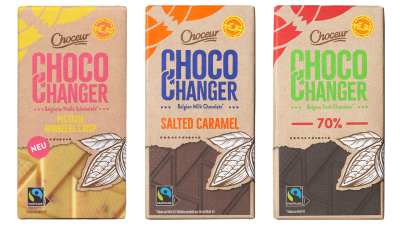
Mission Ally of Tony’s Open Chain
Chocolate bar: Choceur CHOCO CHANGER
A sweet taste, a delicious smell and a little bit(e) of happiness: We are excited to launch our new, responsibly sourced chocolate bar: Choceur CHOCO CHANGER. Our customers’ choice is empowering cocoa farmers in West Africa. Together, we can amplify our positive impact on cocoa farmers and change the norm in the cocoa industry by working on ending poverty, illegal child labour, and deforestation.
As the first international discount retailer to join Tony’s Open Chain in December 2020, ALDI is committed to support Tony’s Open Chain’s ambitious mission to change the norm in the cocoa industry by improving the working conditions along the supply chains and by collaborating in the transparent sourcing of cocoa beans. The cocoa beans for the Choceur CHOCO CHANGER are sourced via Tony’s Open Chain and its 5 Sourcing Principles.

Project in Côte d'Ivoire
PRO-PLANTEURS project
Since 2015, as a member of the German Initiative on Sustainable Cocoa (GISCO) we have worked in partnership with the German government and the government of Côte d'Ivoire in a joint project. PRO-PLANTEURS works together with 25,000 cocoa farmers, including female farmers, their families, and their cooperatives. Successes of the first project phase were
- Professionalisation of cooperatives
- Increase in farmers’ cocoa yields
- Farmer training in Good Agricultural Practices and professional business management
- Diversification of agricultural production and nutrition.
In the PRO-PLANTEURS project, women are specifically trained on good nutrition and the cultivation of food crops for their own use. This allows women to be more financially independent by selling and consuming the harvest of food crops.
In June 2020, PRO-PLANTEURS started its second project phase with a focus on contributing to better living and working conditions of about 30,000 cocoa farmers.
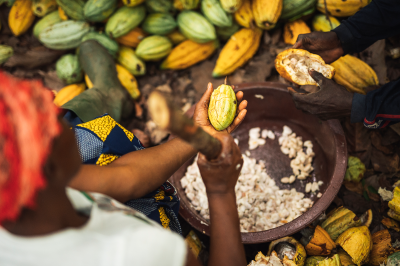
Engagement in Côte d'Ivoire
Fairtrade Impact Report
Last year, the ALDI SOUTH Group, Fairtrade and the Fairtrade cocoa cooperative ECAMOM started a monitoring report to improve the working conditions and livelihoods of local cocoa farmers in Côte d’Ivoire. Now the first impact report “Building Trust. Creating Impact.” has been published.
The first impact report serves as a baseline to provide insights into the work of the cooperative and the farmers, and identifies the challenges they are facing. We aim to provide a picture of what cocoa farming looks like today, and highlight potential areas of opportunities that can enable a long-term partnership between the stakeholders involved in the supply chain.
Read the report: Building trust. Creating impact. First Year Impact Report

Project in Ghana
Income Diversification project
In 2020, the ALDI SOUTH Group has joined forces with the chocolate producer Barry Callebaut and the Cocoa Horizons Foundation to support Ghanaian cocoa farmers to generate alternative income sources to cocoa. The two-year project is co-funded by the Belgian initiative ‘Beyond Chocolate, which is funded by the Belgian Ministry of Foreign Affairs and coordinated by IDH, the Sustainable Trade Initiative.
Activities in the project
The project is intended to support achieving the living income target of ‘Beyond Chocolate’. Within the first year, the following activities were conducted:
- Financial inclusion: 76 ‘Village Saving and Loans Associations (VSLAs)’ were formed to empower women and young people to invest in enterprises and households.
A VSLA provides access to finance in a safe, convenient, and flexible way by pooling together savings and raising resources in a group. It is a low-cost financial service, designed for farmers with irregular income, for example due to the cocoa season, in order to enable continuous solvency and business investments and to improve their family’s livelihoods or to fund household needs.
1008 farmers have benefited from the VSLA training activities so far. By the end of the two-year project, 77 VSLAs will have been founded. - Rejuvenation of cocoa farms: Community nursery projects have started, with the seedlings ready to be planted in the upcoming rainy season. Approximately 80 households will benefit from the rejuvenation of 41 hectares of old cocoa farms.
- Land ownership: Approximately 500 farmers will be provided with official land titles to secure ownership and allow long-term investments on farms by the end of the project. 310 farmers have already signed up. In the first project year, engagement with authorities and government agencies has been achieved.
- Income diversification: Around 110 households were supported in setting up alternative income sources via poultry farming. A second wave of 300 farmers are being currently trained and equipped for poultry farming. Poultry farming is a great alternative as it is less laborious, quick, and a sustainable means to generate income and to bridge the purchasing parity gap, especially when cocoa is out of season.
- Cooking stoves: 580 cooking stoves were distributed to families. The stoves significantly reduce the amount of wood needed to cook, leading families to need less time to cook and a reduced risk for deforestation. The total target is to distribute 500 cooking stoves.
The project is implemented by the Cocoa Horizons Foundation, an independent, non-profit organisation with the purpose to drive cocoa farmer prosperity by creating self-sustaining communities that protect children and nature. Via Barry Callebaut, ALDI is sourcing cocoa from farmers, which benefit from the Cocoa Horizons programme. ALDI customers can enjoy this sustainable product, the Belgian Seashells, during the Christmas season and contribute to a brighter future for cocoa farming communities in Ghana. We are committed to promote and offer products to our customers that are sourced from supply chains supporting a living income and have a decent standard of living for farmers.
Our CR Performance
Our Goal: All cocoa used in relevant own-brand products is from certified sources.
News
Library
Sustainable Development Goals
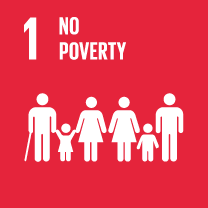
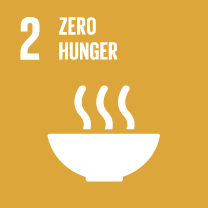
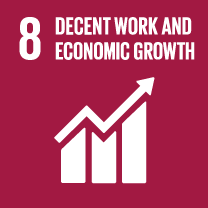
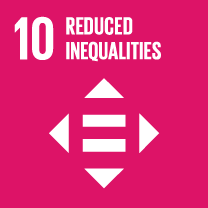
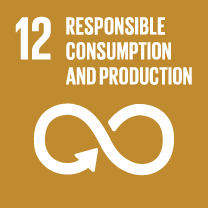
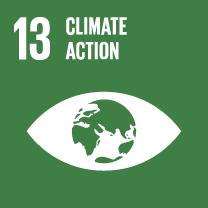
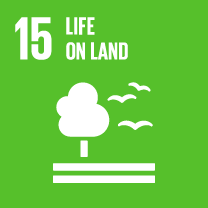
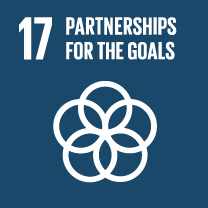
UNGC
Human Rights
Principle 1
Support and respect the protection of human rights
Principle 2
Not complicit in human rights abuses
Labour
Principle 3
Uphold freedom of association and recognition of right to collective bargaining
Principle 4
Elimination of forced and compulsory labour
Principle 5
Abolition of child labour
Principle 6
Elimination of discrimination in respect of employment and occupation
Environment
Principle 7
Precautionary approach to environmental challenges
Principle 8
Promote environmental responsibility
